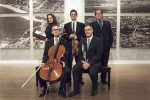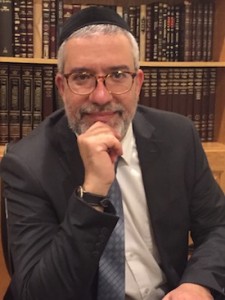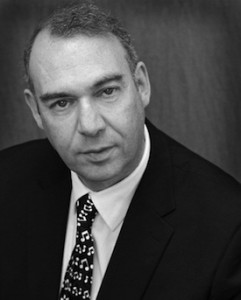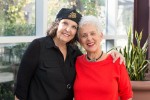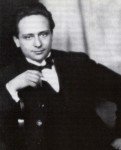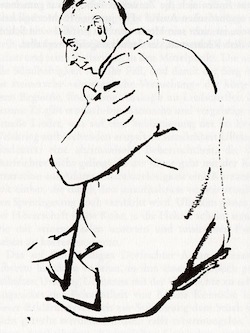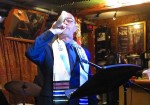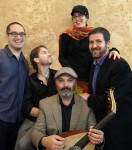On Jan. 26, Robyn Driedger-Klassen (soprano), Joseph Elworthy (cello), Mark Ferris (violin), François Houle (clarinet) and Mark Fenster (baritone) will be joined by Lani Krantz (harp) and Kozue Matsumoto (koto) in a performance of Renia Perel’s Songs of the Wasteland. (photo by Lindsay Elliott)
On the eve of International Holocaust Remembrance Day, Jan. 26, Renia Perel’s Songs of the Wasteland will be presented by the Vancouver Academy of Music (VAM).
The musical memoir is written for two singers and an instrumental ensemble. The first part, “From Tragedy to Triumph,” features songs of remembrance, including to the children who died in the ghettos and to Perel’s family who were killed – she and her sister Henia were the only ones who escaped. The second half, “Survival,” begins with a song Perel dedicates to her husband, Morris, who passed away in 1999, and concludes with “Jerusalem,” Perel’s hope that, one day, there will be no more war.
“I regard Songs of the Wasteland as an epochal work of art that hopefully will in future be as commonly heard during times of Holocaust remembrance as say Britten’s War Requiem during Nov. 11 observances,” Joseph Elworthy, executive director of VAM, told the Independent. “This was one of our far-reaching goals when I first discussed with Renia about mounting the production on Jan. 26, the eve of the UN International Holocaust Remembrance Day.”
Perel approached Elworthy in December 2014 about collaborating with VAM, he said, “as she held a long-standing respect and admiration for the quality of music education we deliver. Songs of the Wasteland was the perfect instrument to realize this desire.”
And Perel’s work connects to VAM’s vision and purpose.
“VAM believes in the transformative power of music to influence our personal development and daily existence,” he explained. “Music has the power to express the inexpressible while allowing room for the listener to formulate their own inner narrative. It is not surprising that Renia turned to music to express her sense of loss and remembrance for the victims of the Holocaust.”
Elworthy also noted, “It is important to point out that VAM is first and foremost an educational institution and not a concert-presenting organization. This allows us more liberty to choose repertoire and projects that will bring educational value for our 1,400-plus students, as well as the community of music appreciators throughout Greater Vancouver.”
This will only be the second public presentation of the work. Elworthy – who, in addition to being executive director of VAM, serves as the head of the academy’s cello department – will take on the cello part.
“The cello so closely resembles the timbres of the human voice, therefore making it a perfect instrument to capture the beautiful nuances of the Jewish liturgical tradition, which are so rooted in song,” he said. “The cello writing for Songs of the Wasteland is exquisite and greatly reminds me of established cello masterpieces such as Max Bruch’s Kol Nidrei and Ernest Bloch’s Schelomo.”
Elworthy will be joined by VAM faculty members Mark Ferris (violin) and Robyn Driedger-Klassen (soprano), as well as Mark Fenster (baritone), François Houle (clarinet), Lani Krantz (harp) and Kozue Matsumoto (koto).
“We are fortunate to have Mark Ferris (VAM violin faculty and concertmaster of the Vancouver Opera Orchestra) as the music director of this production,” said Elworthy. “Mark was part of the original cast and has great insight to the totality of this composition.”
Also part of the original performance was Fenster, the eldest child of Holocaust survivors.
“When Mark Ferris called me and described the piece, I was immediately interested, mainly because of my own family heritage and musical connection with Yiddish and cantorial singing,” said Fenster about why he chose to participate in the 2010 presentation. “Then, later, when I met with Renia and discovered that she and my father lived quite close to one another in prewar Poland, this was an even stronger reason – I could, with my small part, possibly help these two souls, and the many others this piece would surely touch, find some peaceful healing through the expressions in this powerful piece.”
While the music and message of the work remain the same, Fenster said, it somehow “feels more intense this time. I cannot say why. Perhaps because there seems to be more publicity, more media coverage, more interest in the story behind the music, the composer’s journey and her wishes, or because there seems to be intolerance and hatred quite present in the news today. Also, since it is being performed at the VAM this time rather than the Telus Theatre in the Chan Centre, I also feel this may offer a more intimate performance experience for the audience.”
Fenster said that, in performing the work again, his “feelings around the healing and peace-wishing elements of the piece have grown stronger, more profound. Otherwise, I still feel very much as I did in 2010. I still see my mom and dad, their (our) families, and all they went through. And I also see and feel the hurt so many still carry, the ripples from these times and how they have projected into our beings, no matter which faith or personal connection. We’re all affected.”
What also hasn’t changed for Fenster since 2010 are the emotions that Songs of the Wasteland invoke.
“The most difficult work for me in singing this piece is being able to share this art with an honest, open heart, but without it drawing me to tears,” he said. “It took me several weeks of practise in 2010 to get past the tears, and it hasn’t become any easier this time…. I hope we all realize that it doesn’t matter which flag is flying or being torn down, the result is always the same – deep experiences of loss, pain, for us all, from generation to generation. I hope this heartful piece penetrates our fears and leads us to the light that guides us to see love in everyone. That is what I believe is offered in all the scriptures in every tongue.”
One of Fenster’s personal and professional goals is to help people feel peace, believe in themselves and find their own unique joy. In that context, he said, “I wish my own parents could be here to see, hear and feel this piece and all that the composer, arranger, musicians and technicians are sharing. I know they would cry, and smile, and inside they would feel a sense of completeness, a sense that what they went through is understood, compassionately accepted, and that it has led to some wonderful miracles, like their own gratitude, liberation, joy and family.”
For more on Renia Perel’s life and musical work, see “Renia Perel is a ‘survivor who is blessed.” For tickets to Vancouver Academy of Music’s Jan. 26, 7:30 p.m., performance of Songs of the Wasteland, visit vam.eventbrite.ca.

